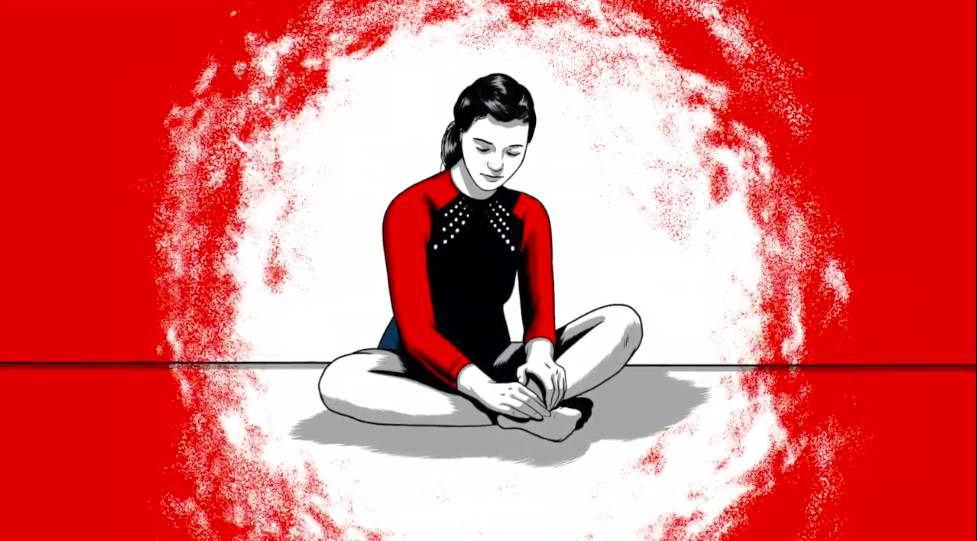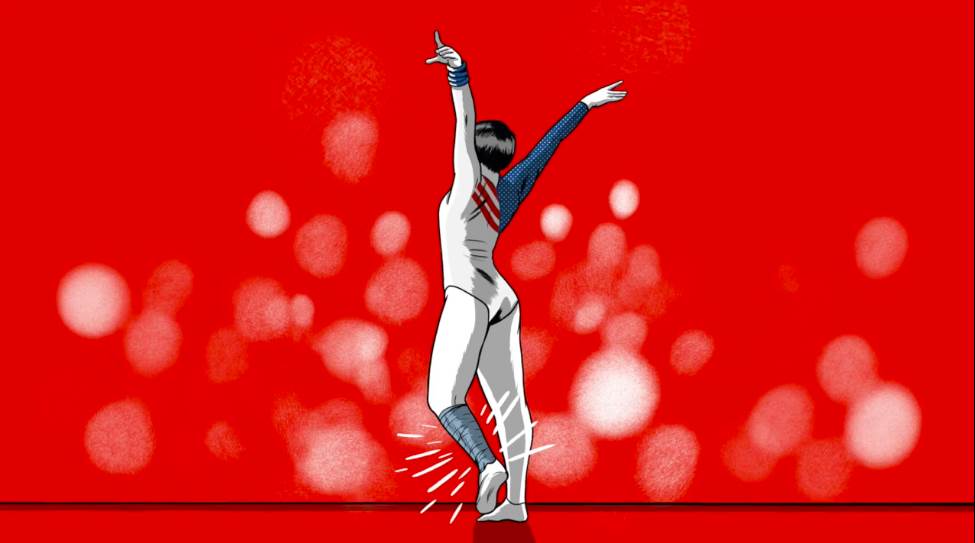Multicultural Women’s Network Hosts Panel of Writers, Gymnasts to Discuss 30 for 30 Podcasts “Heavy Medals”
The Multicultural Women’s Network hosted a listening event today for two episodes of the upcoming season of 30 for 30 Podcasts titled Heavy Medals. In addition to the two episodes, the event also included a panel discussion with senior writers and former gymnasts who took part in the podcast series.
- The panel, which was hosted by ESPN’s Tisha Thompson discussion included:
- Senior Writer Alyssa Roenigk
- Senior Writer Bonnie Ford
- Former Gymnast and Author Jennifer Sey
- Journalist and Author Joan Ryan
- Former Gymnast Tasha Schwikert
- Heavy Medals takes a sweeping look at the influence of legendary Romanian-born coaches, Bela and Martha Karolyi, and, in turn, the transformation of USA Gymnastics over the past four decades, including the abusive culture in the sport and the scandal that lead to its exposure.
- Roenigk and Ford both worked on the podcast and we asked what surprised them while they were putting it together. “What surprised me I think most is that there’s a very distinct difference between how early generations of their gymnasts saw them and later generations,” Ford said. “There’s still a fondness that we found, which we took at face value, from some of their early athletes that is definitely not present in their later athletes as much.”
- Ryan, author of Little Girls in Pretty Boxes: The Making and Breaking of Elite Gymnasts and Figure Skaters, discussed her talks with Bela while she was working on her book, saying “He spent three hours explaining why that girl was a loser, why the parents were negligent, you know this girl was fat. It’s all the stuff we know and it was just so engrained in him that that was the way to coach, that he never hesitated telling a journalist that that girl was too fat and that girl was lazy.”
- Sey, who is the author of Chalked Up: My Life in Elite Gymnastics, shared a little about her time living in that abusive culture that is so common to the Karolyis and other gymnastics coaches, saying “I started gymnastics in 1976 and went to three different gyms over the course of my career and there were always abusers on staff - sexual, emotional, physical.”
- “If you don’t go along, if you don’t get on board with this methodology, which is incredibly cruel, I would argue and fairly widespread, so widespread that it’s invisible, then you are the problem. You are too weak to take it” Sey went on. “And that creates this really vicious cycle for the athlete and ultimately ex-athlete, because you internalize that, right? If you’re told you’re garbage as a child, and these are by and large children, you then believe it, right? But you feel shame for feeling bad about yourself, for having an eating disorder for having self-esteem issues because you were too weak to take it. So it’s this sort of cycle of shame which is incredibly destructive well into adulthood.”
- Schwikert, who won a bronze medal at the 2000 Olympic Games in Sydney, talked about walking into the Karolyis’ training camp, saying “I didn’t know what to expect, so when I came in this super abusive environment, I kinds of just thought that was how it’s supposed to be. I thought ‘if you want to be an Olympian and you want to be good, this is how you’re treated.’ I think it starts there and that’s where the brainwashing begins.”
- “It’s unfortunate because, you know, it started at 15, you kind of buy into the system,” Schwikert continued. “You keep your mouth shut, you’re told not to, you know, cause a ruckus, you do your routines, if you have an injury you don’t talk about it. At mealtime, it was almost like you won the meal if you didn’t eat your food.”
- Schwikert was also asked about being jealous of the girls who didn’t make the cut and get to compete on the elite level. “They had a better experience,” she said. “When little girls used to come up to me after being an Olympian and at this time I was National Champion and winning a good deal of the competitions, it was like ‘how was the Olympics?’ and we were trained by the Karolyis and by USA Gymnastics to just basically tell everyone how wonderful it was.”
- “But every time I told that story, I knew I was lying,” Schwikert said. “Like, I was lying to every little girl and I felt bad about it, but I just felt like that was my job and that was my obligation to just make it picture perfect. But it was some of the darkest years of my life.”
- In probably the most powerful moment in the conversation, Schwikert was asked if she would do it again. After a haunting pause, Schwikert responded, “I don’t think so because of the lasting effects it has on people. I mean, for the most part, I’d like to consider myself a very strong individual but I developed an eating disorder that lasted for 10 years and that almost killed me.”
- “Coming out in the world, initially I had no confidence in my abilities to do anything,” she went on. “I just don’t think it’s worth it. Like, saying you’re an olympian and having an Olympic medal at the end of the day… like, I look at that medal and it’s not joyful. I just look at it and I see pain. A lot of pain and suffering.”
- While discussing what could be done to change the abusive culture in gymnastics, Sey put some of the responsibility on the companies that sponsor the teams.
- “It’s all about money. I mean, everything is, right? At the end of the day,” Sey said. “When I first became aware of [Larry] Nassar as a chief marketing officer at Levi’s, I was calling all the other chief marketing officers at organization that sponsored USAG and saying ‘do you really want to put your money there? Is that an association you want for your brand? You want to associate with USAG, a brand that endorses child abuse? That’s what you want?’ It’s not a choice I would make as a lead marketer of a brand.”
- Finally, when asked why people should listen to all seven episodes of Heavy Medals, Roenigk explained “There are so many moments that, for me personally, have sat with me and they’re all in those last two episodes. There’s a lot before it but there’s some really powerful stuff in those episodes.”
- 30 for 30: Heavy Medals will be available tomorrow (July 14, 2020) on Apple Podcasts and Spotify.
- Check out Mack’s review of the podcast series here.





